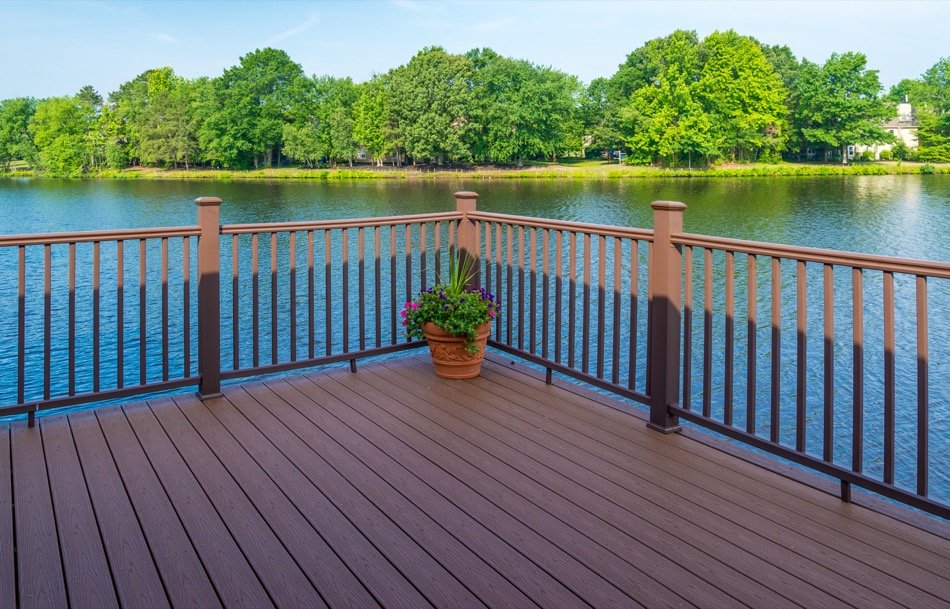5 Keys to a Successful Home Decking Installation
Posted by Justin Havre on Thursday, October 3rd, 2019 at 9:37am.
 River Heights homeowners with a desire for decking typically have several reasons for considering investing in a new or expanded installation. Regardless of the reasoning, an eye must be turned to the ‘business' aspects of installing a deck such as meeting local building codes, choosing resilient materials, placement and design and much more. Here are five key things to ponder before beginning a decking project.
River Heights homeowners with a desire for decking typically have several reasons for considering investing in a new or expanded installation. Regardless of the reasoning, an eye must be turned to the ‘business' aspects of installing a deck such as meeting local building codes, choosing resilient materials, placement and design and much more. Here are five key things to ponder before beginning a decking project.
For informational purposes only. Always consult with a licensed real estate professional before proceeding with any real estate transaction.
1. Be Aware of Permitting and Building Code Requirements
Depending on the township or province the deck is to be constructed within, there are likely certain requirements and compliancies involved in getting proper approval for the project. Restrictions may include limitations on the use of certain materials, how large a deck can be, and where decking can be placed around a structure. A professional decking contractor will be aware of local regulations and will handle obtaining any legal documentation prior to beginning the project.
2. Determine the Most Suitable Type of Material
Homeowners will want to enhance their lifestyle and existing landscapes with a new decking installation, but they will also want to keep the future in mind as well when choosing what type of material to utilize for the project. Choose a resilient material that will last for decades with care and maintenance, and keep ROI in mind if selling is a predominant reason for adding a deck. Here are some considerations.
Wood Decking—Pressure-treated pine, redwood, cedar, cypress and spruce remain the most popular types of decking installations in Canada. It is weather-resistant to some extent with regular care and re-sealing, and exotic woods can offer up to a 35% ROI.
Composite Decking—Quickly rising in popularity with homeowners, composite decking requires a more significant initial investment over most wood materials, but they need less maintenance, resist pests, rotting and mould, and offer a longer lifespan.
Polymer Decking—A newer player on the decking scene, polymer decks are crafted from synthetic materials that resist fading, warping, pests, rotting and mould. They come at a premium price, but a lifetime warranty accompanies the investment.
3. Unique Versus Traditional Designs
A deck should be designed to meet the homeowners needs and desires, so a checklist should be created with priorities laid out clearly before any permit seeking or work begins. Is the space going to be primarily for privacy and relaxation or for entertaining? Will there be a hot tub addition or multiple levels that wrap around the home? Will there be gardens, trellises or other additions to create a unique, lavish space? Keep these factors in mind when planning the project with a decking architectural designer, so the best materials and location can better be determined.
4. Deck Placement is Fundamental for Greater Fulfillment
Having decking conveniently placed in the areas you want greater access to ensures maximum enjoyment. Those wanting to step out of a doorway and onto their deck will want a functional deck designed to make easy transitions into the great outdoors. Of course, the amount of sun and shade the deck will receive should also be considered when determining placement.
5. Be Mindful of Maintenance Needs
Most owners want to spend time taking advantage of their deck as a respite and place for pleasure rather than hassling with hours of intensive maintenance or mould remediations that some decking can require. While composite and polymer decking are virtually maintenance-free, wood is likely to call for annual or bi-annual re-staining and sealing to maintain its beauty and integrity. This might be a deciding factor concerning which materials to choose to suit lifestyle preferences.
A well cared for deck can last for decades and add a great deal of appeal to just about any residential property. However, given the nature and complexity of such projects, it's best for homeowners to consult with a professional decking contractor to discuss their needs.
For informational purposes only. Always consult with a licensed real estate professional before proceeding with any real estate transaction.
